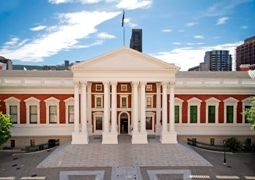
This week the National Council of Provinces (NCOP) is holding a critical induction programme with the South African Local Government Association (Salga) in Cape Town, to deliberate on the role of the local sphere of governance in national legislative processes.
The two-day programme started with presentations from the Secretariat of the NCOP on the structure, role and mandate of the Council, rules of debate as well as the Powers, Privileges, Immunities of Parliament and Provincial Legislatures Act.
Though the Constitution prescribes that Salga can have up to 10 representatives in the NCOP who can participate in debates in the House, the role of the local government is limited when it comes to voting in the House, Salga does not have voting powers.
Secretary to the NCOP, Adv Modibedi Phindela, told the workshop attendees that it would make sense to have Salga participate in the Committees of the NCOP to take a position and make inputs on issues before they are debated in the House.
“Full participation of Salga in the NCOP cannot happen unless the Constitution is amended to grant this sphere voting rights, currently Salga only participates in debates,” said Adv Phindela.
Ms Masefako Dikgale, House Chairperson, International Relations and Members Support in the NCOP said the question of whether Salga should have permanent representation in NCOP was receiving special attention in the Speakers’ Forum (an organisation of Speakers and Deputy Speakers of the Provincial Legislatures and the National Assembly, as well as the Chairperson and Deputy Chairperson of the NCOP).
Another structural issue that might require an amendment to the Constitution is the role of the second rotating Deputy Chairperson of the NCOP, a position which rotates among the nine Premiers of the provinces.
The role of the second Deputy Chairperson is not clearly defined and to make matters worse, Premiers have busy schedules of running provinces and are hardly in Parliament. But because this is provided for by the Constitution, change would require a constitutional amendment.
“The Constitution provides for a second rotating Deputy Chairperson but does not assign any responsibilities to this position, we have never derived any benefit from that position, Premiers are seldom here, they are very busy in their provinces.
“During the fourth Parliament and at the beginning of the fifth Parliament, there has been discussions as to whether the Constitution should be amended to do away with the rotating deputy – no functions assigned and if that Deputy Chair is a Premier, the NCOP has never derived any benefit from the position,” Adv Phindela explained.
Adv Phindela said rules of Parliament and the Powers, Privileges and Immunities of Parliament and Provincial Legislatures Act granted Members of Parliament (MPs) and Members of Provincial Legislatures freedom of speech during a House sitting and Committee meetings, which he said must be done within related laws.
“The purpose of granting MPs freedom of speech is to allow free flow of information, to represent the electorate without influence of outside powers.
The NCOP membership (54 permanent and 36 special delegates) consists of nine provincial delegates, each province with equal number of delegates. Salga is allowed 10 representatives in the NCOP.
Each province has 10 delegates, four special and six permanent. The delegation is headed by the Premier who is one of the special delegates. But because they have other responsibilities and are hardly in Parliament, the delegation is led by a Provincial Whip when in Parliament. Special delegates rotate on the basis of specific mandates form legislatures.
Early this year during another engagement with Salga and the nine legislatures, the Chairperson of the NCOP, Ms Thandi Modise, called for more coordination between these three parties (national Parliament, provincial legislatures and municipalities) for effective oversight that will impact on service delivery.
She said there was a need to find ways to synchronise the works of these institutions in order to avoid oversight stampede and duplication.
“We need to look at our relationship with the provinces and municipalities and evaluate the way in which we do business with the national executive,” said the Chairperson.
“What is the reach of Parliament, can we bring a municipal head to account before a Committee, what we mean when we say that provincial interest is the business of the NCOP. There is a need for synergy of the work of the NCOP and the provinces,” she said.
By Sakhile Mokoena
3 October 2017

